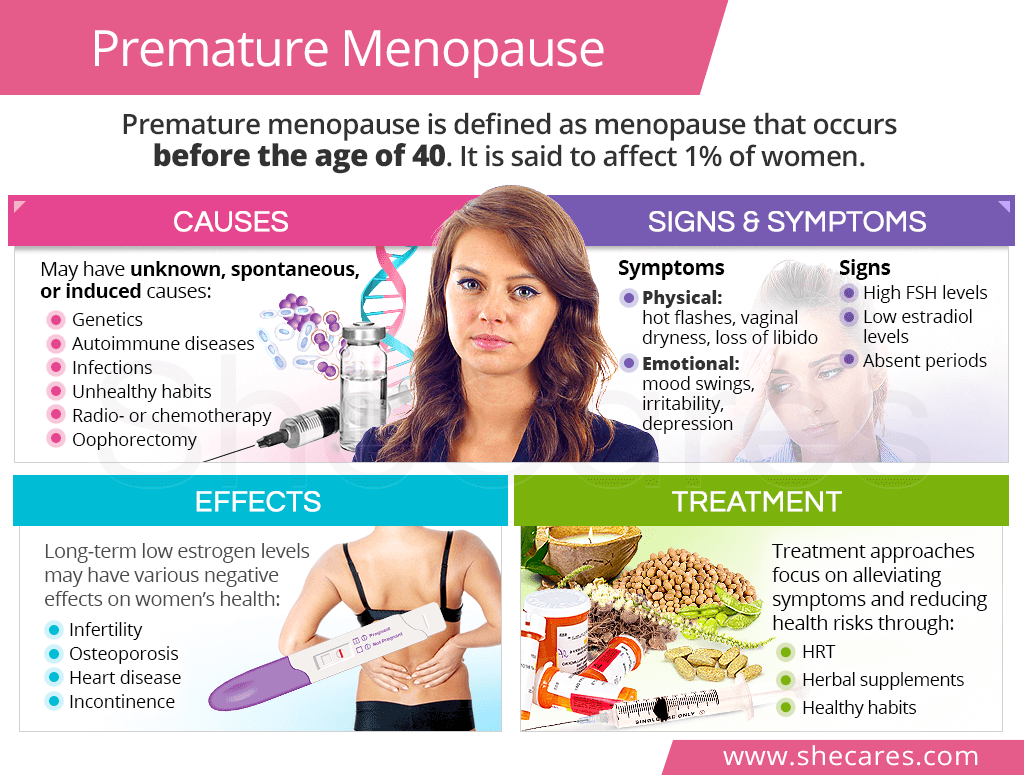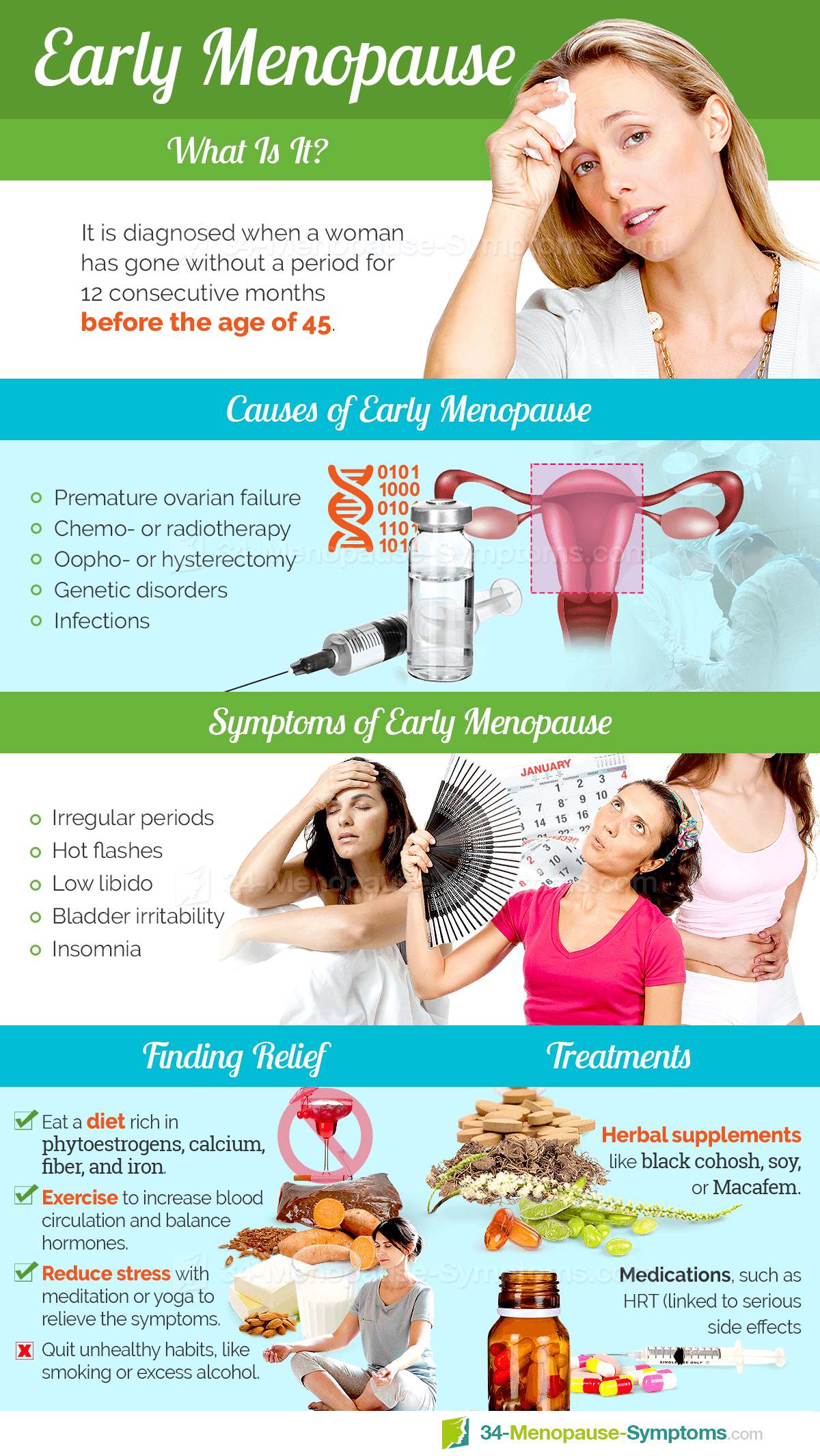Premature Menopause Symptoms: Signs Of Early Onset Menopause
Menopause is a natural biological process that all women undergo as they age. However, what happens when a woman experiences menopause much earlier than expected? This is known as premature menopause and can be a significant cause for concern as it may have implications on a woman's reproductive and general health.
Understanding Premature Menopause
Premature menopause occurs when a woman's ovaries stop producing enough estrogen to continue the menstrual cycle before the age of 40. The cause of premature menopause can be due to a range of factors, including genetic predisposition, autoimmune disorders, chemotherapy or radiation therapy, or surgical removal of the ovaries.
Women who experience premature menopause may face a range of symptoms, which can include hot flashes, night sweats, vaginal dryness, mood swings, and difficulty sleeping. Additionally, reduced estrogen levels may increase the risk of osteoporosis, heart disease, and other chronic health conditions.
What is Premature Menopause?
Premature menopause is a condition where a woman experiences natural menopause before the age of 40. Menopause is a natural process in which a woman stops menstruating due to a decline in the production of estrogen by the ovaries. This cessation of menstruation marks the end of a woman's reproductive years. Premature menopause can have significant implications on a woman's health and well-being, both in the short-term and long-term.

Importance of Recognizing Premature Menopause
Given the potential impacts of premature menopause on a woman's health, it is crucial to recognize its symptoms and seek a diagnosis from a healthcare professional. Early recognition of the condition can lead to appropriate treatment and management of symptoms, as well as prevent the onset of chronic health conditions later in life.
Statistics on Premature Menopause
Premature menopause is relatively rare, affecting only 1% of women. However, its incidence is increasing due to several factors, including lifestyle changes and increased exposure to environmental toxins. Additionally, women with a family history of premature menopause or autoimmune disorders may be at a higher risk of developing the condition.
Types of Premature Menopause
There are two types of premature menopause: primary ovarian insufficiency (POI) and premature ovarian failure (POF). POI occurs when the ovaries fail to produce enough estrogen due to a genetic predisposition or underlying autoimmune disorder. POF, on the other hand, occurs when the ovaries cease to function prematurely, resulting in reduced estrogen levels and the cessation of menstruation before the age of 40.
Risk Factors for Premature Menopause
While the cause of premature menopause is not always clear, some risk factors may increase a woman's likelihood of developing the condition. These include:
- Family history of premature menopause
- Underlying autoimmune disorders
- Chemotherapy or radiation therapy
- Surgical removal of the ovaries
- Smoking
- Exposure to environmental toxins

Recognizing Early Symptoms of Premature Menopause
Early symptoms of premature menopause may include:
- Irregular periods
- Hot flashes
- Night sweats
- Vaginal dryness
- Mood swings
- Difficulty sleeping
- Decreased libido
- Increased fatigue
It is important to recognize these symptoms and seek a proper diagnosis from a healthcare professional. A diagnosis can help to identify the cause of premature menopause and determine appropriate treatment and management strategies.
Diagnostic Tests for Premature Menopause
A healthcare professional may conduct several diagnostic tests to determine whether a woman has premature menopause. These tests can include:
- Follicle-stimulating hormone (FSH) test
- Estradiol test
- Pregnancy test
- Thyroid function test
- Prolactin test
- Antinuclear antibody test
These tests can provide valuable information about a woman's hormone levels, thyroid function, and general health. Based on the results of the tests, a healthcare provider may recommend additional testing or prescribe appropriate treatment.
Awareness and Prevention of Premature Menopause
While it may not be possible to prevent premature menopause, there are steps women can take to maintain their reproductive and general health, including:
- Eating a healthy diet rich in calcium and vitamins
- Exercising regularly
- Not smoking
- Limiting alcohol consumption
- Managing stress levels
- Regular gynecological check-ups
- Monitoring menstrual cycles and any irregularities
- Seeking treatment for any underlying autoimmune disorders
Early Detection of Premature Menopause
Early detection of premature menopause can help to prevent the onset of chronic health conditions, such as osteoporosis and heart disease. Women who experience early symptoms of premature menopause should seek a proper diagnosis from a healthcare professional and be open to treatment options and management strategies.
Timely Treatment and Support
Women who are diagnosed with premature menopause may receive treatment options that can include hormone replacement therapy (HRT), antidepressants, and lifestyle modifications. Support from friends, family, and healthcare providers can help to alleviate the emotional and psychological impacts of the condition and provide a path towards managing the symptoms effectively.

Support and Resources
Women who are diagnosed with premature menopause may benefit from joining support groups or seeking resources that can provide information on managing and coping with the condition. Resources can be found through healthcare providers, patient advocacy organizations, and online support groups.
Komentar
Posting Komentar